| A: “Have you seen Clara today?” B: “Yeah! She was at the…uhm…the…the community center.” |
Have you ever had this happen to you during a conversation?
Forgetting the word for something is common enough in one’s native language, but it can become a real struggle when speaking a foreign language.
Vocabulary is the most essential element in being able to communicate with others. Knowing just a couple hundred words can help you express your needs and wants and allow you to talk with others.
In this article, we’ll introduce 245 basic English words for beginners. These are words that you should know at the beginner level (levels A1 and A2 of the CEFR scale). You will hear and use the words on this list every day!
Many of these words may be familiar to you already, and some of them may be new to you. We recommend taking note of any words you don’t recognize and adding them to a flashcard deck.
Let’s get started.

A good vocabulary will help you communicate effectively in English and make friends!
 Table of Contents
Table of Contents
1. Pronouns
The first set of words you should add to your English vocabulary are pronouns. Many learners struggle to learn them, but they serve a few important functions. Pronouns are the words we use in place of nouns to make sentences smoother and to avoid redundancy of proper nouns.
- → You can hear the pronunciation of different pronouns on our vocabulary list of the Most Useful Pronouns and learn how to use them in our Comprehensive Guide to English Pronouns.
Personal
#1
| I | I make soup. |
#2
| You [s] | You make soup. |
#3
| He / She / It | He makes soup. |
#4
| We | We make soup. |
#5
| You [p] | You make soup. |
#6
| They | They make soup. |
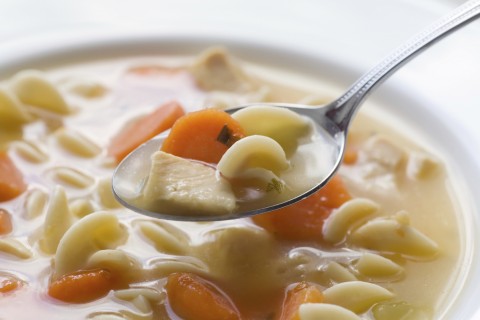
I make soup.
Demonstrative
#7
| This | What is this? |
#8
| That | What is that? |
#9
| These | What are these? |
#10
| Those | What are those? |

What is that?
Interrogative
#11
| What | What does it mean? |
#12
| Who | Who are you? |
#13
| Where | Where is the bathroom? |
#14
| When | When is the meeting? |
#15
| Why | Why did you leave early? |
#16
| How | How do you feel? |
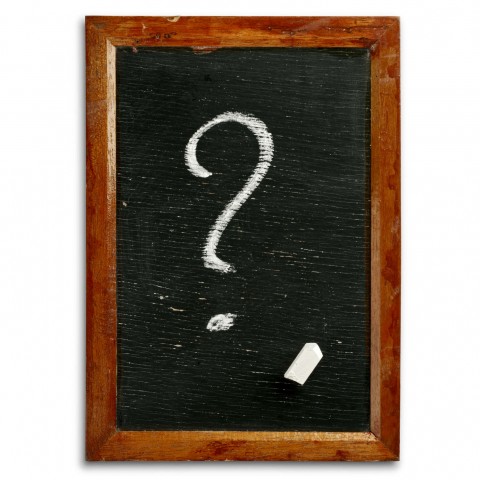
Interrogative pronouns help you ask questions.
Reflexive
#17
| Myself | I ate the pizza myself. |
#18
| Yourself | Where do you see yourself in ten years? |
#19
| Himself | He needs to take better care of himself. |
#20
| Herself | She went to the mall by herself. |
#21
| Ourselves | We were ashamed of ourselves. |
#22
| Yourselves | What will you do with yourselves? |
#23
| Themselves | They ate the whole pie themselves. |
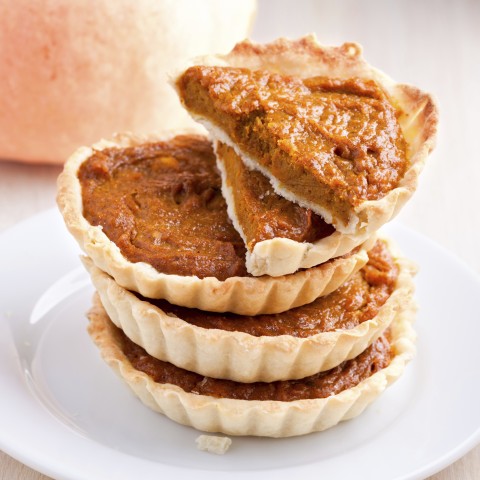
They ate the whole pie themselves.
2. Numerals
Numbers are everywhere, so it’s important that you know how to read numbers and talk about numbers out loud.
- → You can find a few more numbers in our Numbers vocabulary list and learn how to use them in our article Numbers in English.
#24
| One (1) | I’ll have one cookie, please. |
#25
| Two (2) | I’ll have two cookies, please. |
#26
| Three (3) | I’ll have three cookies, please. |
#27
| Four (4) | I’ll have four cookies, please. |
#28
| Five (5) | I’ll have five cookies, please. |
#29
| Six (6) | I’ll have six cookies, please. |
#30
| Seven (7) | I’ll have seven cookies, please. |
#31
| Eight (8) | I’ll have eight cookies, please. |
#32
| Nine (9) | I’ll have nine cookies, please. |
#33
| Ten (10) | I’ll have ten cookies, please. |
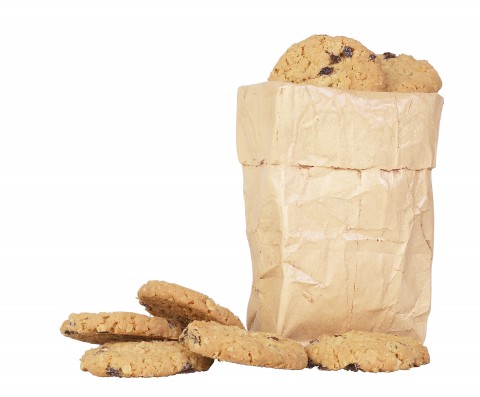
I’ll have seven cookies, please.
3. Nouns
Nouns are the most important English words for beginners to learn. Even if you have a limited vocabulary, nouns can help you get your point across.
In English, there are common nouns and proper nouns. Common nouns simply label an object or idea (boy, park, month). Proper nouns give a specific name to a common noun (Jim, Eisenhower Park, October). As you will notice, proper nouns are capitalized in English.
You will see both types of nouns on this list.
- → Learn 100+ Must-Know Nouns in English with us and significantly expand your vocabulary!
People
#34
| People | Who are those people? |
#35
| Man | That man is wearing a hat. |
#36
| Woman | That woman is wearing a scarf. |
#37
| Child | That child is playing a game. |
#38
| Husband | This is my husband, Roger. |
#39
| Wife | This is my wife, Ellen. |
#40
| Son | Here is our son, Thomas. |
#41
| Daughter | Here is our daughter, Susan. |
#42
| Grandmother | Is Grandmother doing well? |
#43
| Grandfather | Is Grandfather doing well? |
#44
| Brother | I have a younger brother. |
#45
| Sister | I also have a younger sister. |
#46
| Siblings | They are my siblings. |

This is my wife, Ellen.
Occupations
#47
| Work | That was hard work. |
#48
| Job | Do you have a job? |
#49
| Occupation | What is your occupation? |
#50
| Lawyer | Steve is a lawyer. |
#51
| Farmer | Sue is a farmer. |
#52
| Engineer | He is an engineer. |
#53
| Mechanic | She is a mechanic. |
#54
| Electrician | He wants to be an electrician. |
#55
| Designer | She wants to be a designer. |
#56
| Gardener | Her mother is a gardener. |
#57
| Doctor | His father was a doctor. |
#58
| Pharmacist | Polly works as a pharmacist. |
#59
| Plumber | David works as a plumber. |
#60
| Barber | David’s brother is a barber. |
#61
| Salesperson | Polly’s sister is a salesperson. |
#62
| Clerk | You are a good clerk. |

His father was a doctor.
Time
#63
| Time | What time is it? |
#64
| Second | A second is a very short unit of time. |
#65
| Minute | A minute is sixty seconds. |
#66
| Hour | An hour is sixty minutes. |
#67
| Day | What day is this? |
#68
| Week | I made cookies last week. |
#69
| Month | What are you doing next month? |
#70
| Year | Next year is full of opportunities. |
#71
| Monday | Monday is the first day of the work week. |
#72
| Tuesday | Tuesday is the second day of the work week. |
#73
| Wednesday | Wednesday is the third day of the work week. |
#74
| Thursday | Thursday is the fourth day of the work week. |
#75
| Friday | Friday is the fifth day of the work week. |
#76
| Saturday | Saturday is the first day of the weekend. |
#77
| Sunday | Sunday is the second day of the weekend. |
#78
| January | January is the first month. |
#79
| February | February is the second month. |
#80
| March | March is the third month. |
#81
| April | April is the fourth month. |
#82
| May | May is the fifth month. |
#83
| June | June is the sixth month. |
#84
| July | July is the seventh month. |
#85
| August | August is the eighth month. |
#86
| September | September is the ninth month. |
#87
| October | October is the tenth month. |
#88
| November | November is the eleventh month. |
#89
| December | December is the twelfth month. |
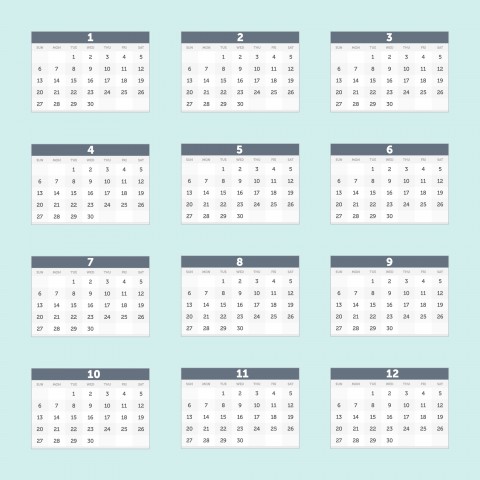
Body Parts
#90
| Head | My head hurts. |
#91
| Face | You have a pretty face. |
#92
| Neck | Her neck is sore. |
#93
| Shoulder | She dislocated her shoulder. |
#94
| Chest | Are you having chest pains? |
#95
| Arm | What happened to his arm? |
#96
| Hand | Let me see your hand. |
#97
| Finger | I cut my finger chopping vegetables. |
#98
| Leg | Don’t put pressure on your leg. |
#99
| Foot | Which foot did you hurt? |
#100
| Toe | I stubbed my toe. |
#101
| Stomach | My stomach is rumbling. |
#102
| Back | Sitting too much is bad for your back. |
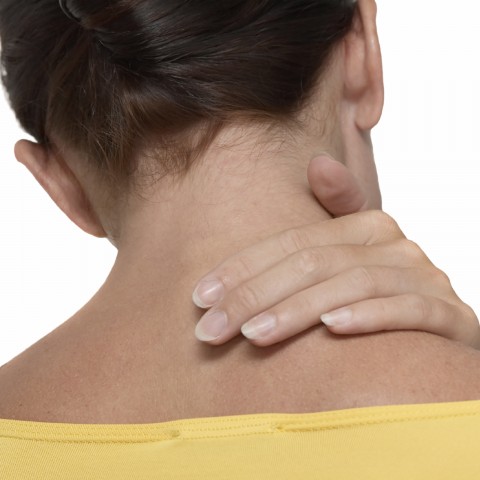
Her neck is sore.
Food
#103
| Vegetable | Broccoli is my favorite vegetable. |
#104
| Fruit | Avocado is my favorite fruit. |
#105
| Grain | Quinoa is a healthy grain. |
#106
| Meat | She doesn’t eat meat. |
#107
| Dairy | Milk and cheese are dairy products. |
#108
| Egg | Crack the egg in the bowl. |
#109
| Oil | Put oil in the pan. |
#110
| Butter | Melt the butter in the microwave. |
#111
| Salt | Add salt to taste. |
#112
| Pepper | Add pepper to taste. |
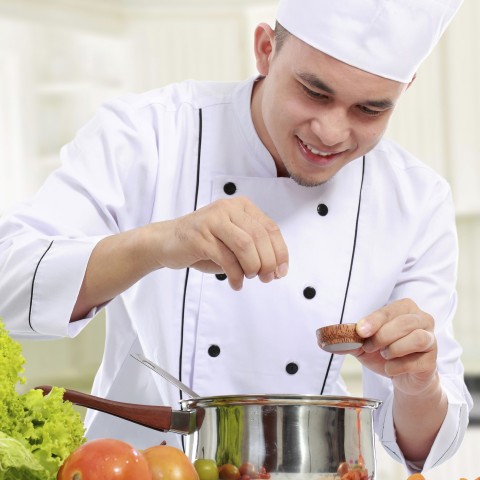
Add salt to taste.
Around Town
#113
| Hospital | He is sick in the hospital. |
#114
| Supermarket | Can you pick up milk at the supermarket? |
#115
| School | I don’t want to go to school. |
#116
| Downtown | We can meet up downtown. |
#117
| Movie theater | We saw a film at the movie theater. |
#118
| Jail / Prison | She was taken to jail yesterday for a crime. |
#119
| Library | You must be quiet in the library. |
#120
| Community center | Our community center has a pool. |
#121
| Park | She took her son to the park. |
#122
| Restaurant | The food at the restaurant was wonderful! |
#123
| Mall | We can buy clothes at the mall. |
#124
| Car | You must travel there by car. |
#125
| Road | He walked up the road. |
#126
| Street | Make a left on the next street. |
#127
| Train | You must travel there by train. |
#128
| Bus | You must travel there by bus. |
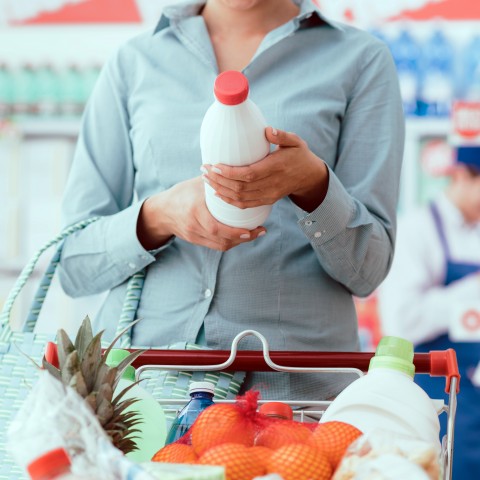
Can you pick up milk at the supermarket?
School and Office
#129
| Desk | Ryan sat at his desk. |
#130
| Chair | Lily bought a new chair yesterday. |
#131
| Pencil | I need to sharpen this pencil. |
#132
| Pen | That pen is out of ink. |
#133
| Notebook | The notebook is full. |
#134
| Book | Turn to page 228 in your book. |
#135
| Paperclip | May I have a paperclip? |
#136
| Stapler | Use the stapler to keep the pages in order. |
#137
| Drawer | Put your sack lunch in the drawer. |
#138
| Cabinet | There’s more glue in the cabinet. |
#139
| Folder | Place the assignment in your folder. |
#140
| File | Which computer file do I open? |
#141
| Computer | This computer isn’t working. |
#142
| Keyboard | This keyboard is missing a letter. |
#143
| Mouse | I use an ergonomic mouse every day. |
#144
| Have you received my email? |

This computer isn’t working.
4. Verbs
When you use verbs and nouns together, you can form a complete sentence. Here are some of the most common English beginner verbs.
- → We list plenty of verbs here, but if you want to learn more, read our article on 100+ Verbs in English!
Daily Routine
#145
| Get up | I get up at six every morning. |
#146
| Brush (one’s) teeth | You should brush your teeth every day. |
#147
| Comb (one’s) hair | Did Peter comb his hair today? |
#148
| Get cleaned up | I should get cleaned up before dinner. |
#149
| Bathe | Does Emma bathe often? |
#150
| Shower | I shower after a workout. |
#151
| Eat | Lacy doesn’t eat much. |
#152
| Drink | I drink black tea in the morning. |
#153
| Go to work | What time do you go to work? |
#154
| Go to school | Do you still go to school? |
#155
| Work | I don’t like to work on the weekend. |
#156
| Study | Dan wants to study nutrition. |
#157
| Drive | Can Wendy drive yet? |
#158
| Ride | May I ride with you to work? |
#159
| Sleep | She needs to sleep more. |
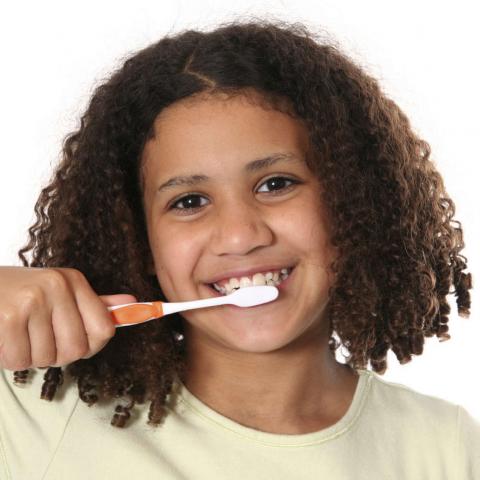
You should brush your teeth every day.
Other Common Verbs
#160
| Give | Let me give you this present. |
#161
| Get | Can you get the remote for me? |
#162
| Bring | Did you bring her the flowers? |
#163
| Return | Eric forgot to return the library book. |
#164
| Do | Does Sherri do yoga? |
#165
| Use | How do you use that device? |
#166
| Make | Tori makes dinner every night. |
#167
| Can | I can speak a little Spanish. |
#168
| Put | Where did you put the scissors? |
#169
| Let | Why won’t he let me help? |
#170
| Leave | The angry man was asked to leave. |
#171
| Ask | May I ask you a question? |
#172
| Tell | She promised not to tell the secret. |
#173
| Talk | Harry and Helen need to talk. |
#174
| Find | Did you find your cell phone yet? |
#175
| Greet | He didn’t greet me. |
#176
| Smile | You should smile more. |
#177
| Run | They run together every morning. |
#178
| Sit | Where can I sit? |
#179
| Lie down | He is sick and needs to lie down. |
#180
| Rest | After the hike, she needed to rest. |
#181
| Cook | Do you know how to cook? |
#182
| Read | I like to read books sometimes. |
#183
| Write | It is hard to write a book. |
#184
| Go out | I need to go out to the grocery store. |
#185
| Shop | Lucy shops at the mall often. |
#186
| Buy | We need to buy more clothing. |
#187
| Watch | They watch movies at night. |
#188
| Listen | I listen to music while I work. |
#189
| Feel | She feels sad today. |
#190
| Think | They think it’s a bad idea. |
#191
| Agree | Do you agree with them? |
#192
| Disagree | I disagree with them. |
#193
| Open | What time does the coffee shop open? |
#194
| Close | Please close the door. |

They run together every morning.
5. Adjectives
Adjectives are used to describe nouns. Here are the most useful English beginner adjectives.
- → If these aren’t enough for you, read our article on 100+ Adjectives in English!
Describing Objects
#195
| Big | Arizona has big spiders. |
#196
| Small | Our neighbor’s dog is small. |
#197
| Long | This is a long list of words. |
#198
| Short | He read a short book. |
#199
| Round | The basketball is round. |
#200
| Flat | The ground here is flat. |
#201
| Narrow | He made a narrow escape from prison. |
#202
| Wide | That road is very wide. |
#203
| Hard | My desk is hard. |
#204
| Soft | The blanket is soft. |
#205
| Light | The sky is light blue. |
#206
| Dark | It will be dark outside soon. |
#207
| Cheap | These pencils are cheap. |
#208
| Expensive | That sofa is expensive. |

The basketball is round.
Describing People
#209
| Good | He is a good person. |
#210
| Bad | She is a bad person. |
#211
| Pretty | Sarah looks very pretty. |
#212
| Handsome | Richard looks very handsome. |
#213
| Tall | That boy is tall. |
#214
| Short | The other boy is short. |
#215
| Thin | Karen is too thin; she should eat more. |
#216
| Fat | Mike is too fat; he should exercise more. |
#217
| Kind | Linda is a kind person. |
#218
| Mean | Quinten is a mean person. |
#219
| Polite | Mary is always polite to others. |
#220
| Rude | Elliot is rude to his mother. |
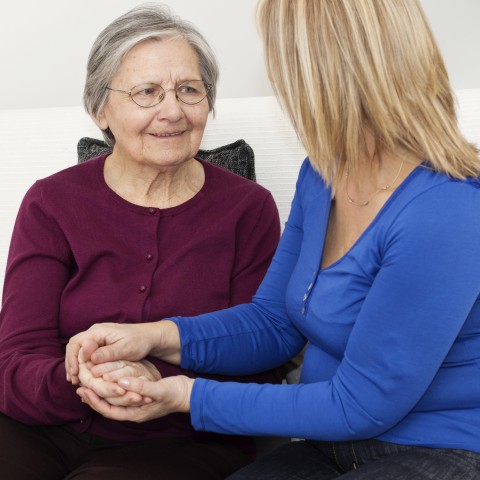
Linda is a kind person.
Describing Emotions
#221
| Happy | Eating good food makes me happy. |
#222
| Sad | Kelly is sad after her breakup. |
#223
| Angry | Louis becomes angry too easily. |
#224
| Tired | They were tired after work. |
#225
| Upset | I was upset when I spilled the soup. |
#226
| Excited | Cecilia was excited for the camping trip. |
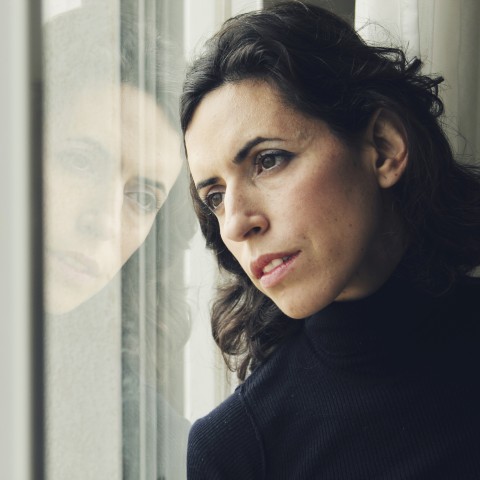
Kelly is sad after her breakup.
Describing Weather
#227
| Sunny | Today it was sunny. |
#228
| Cloudy | Washington is always cloudy. |
#229
| Rainy | I don’t go outside when it’s rainy. |
#230
| Foggy | It was too foggy to drive. |
#231
| Windy | The trees bend when it’s windy. |
#232
| Hot | The desert is very hot. |
#233
| Cold | It gets cold in the winter. |
#234
| Warm | It is warm where I live. |
#235
| Cool | The autumn air is cool. |
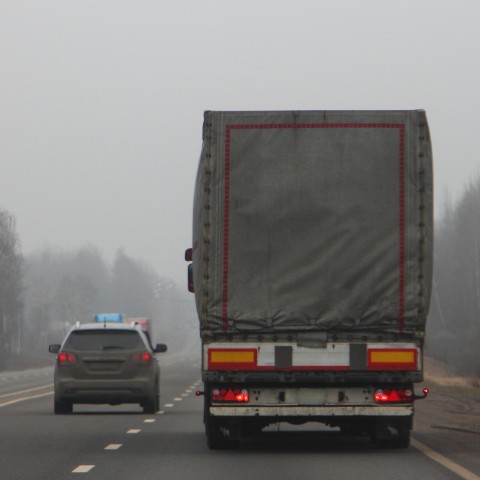
It was too foggy to drive.
6. Conjunctions
Conjunctions are small words that allow you to connect two or more clauses to each other. Due to their essential role in language, they’re among the most important words every English beginner must know. Here are a few common ones.
- → Study our article What is a Conjunction in English Grammar? to learn more about how these little words work!
#236
| And | I love chocolate and red wine. |
#237
| But | He likes fruit, but not bananas. |
#238
| Or | Do you want Chinese food or Mexican food? |
#239
| If | If he says yes, then I will be happy. |
#240
| Then | If he says yes, then I will be happy. |
#241
| Because | We left early because of an appointment. |
#242
| So | Mark lied so he wouldn’t get in trouble. |
#243
| Before | I eat breakfast before work. |
#244
| After | I make dinner after work. |
#245
| Than | She likes cake more than Nina does. |
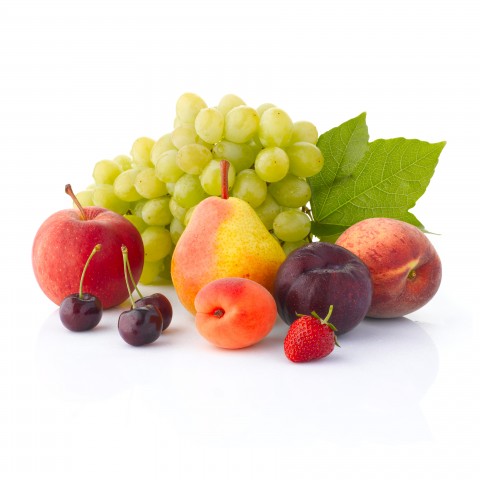
He likes fruit, but not bananas.
7. Final Thoughts
You just read 245 simple English words for beginners and saw them used in sentences. What are your thoughts? Were any of these words new to you?
The best way to memorize them is to create your free lifetime account with EnglishClass101.com and add them to your Flashcards. Our spaced repetition flashcard system is a proven method for easily memorizing new words. You can also create your own flashcards using index cards or another online system.
Alternatively, you can write these words on sticky notes and place them around your house on the object they identify or describe. This will help you quickly start to associate the word with its definition because you’ll see the words all day long!
We know that learning new vocabulary can be hard. But we encourage you not to give up! EnglishClass101 will be here with you every step of the way with help and useful resources.
Keep studying and practicing so that you’ll be ready for our upcoming articles on Intermediate Words and Advanced Words!
Happy learning and stay safe out there.










